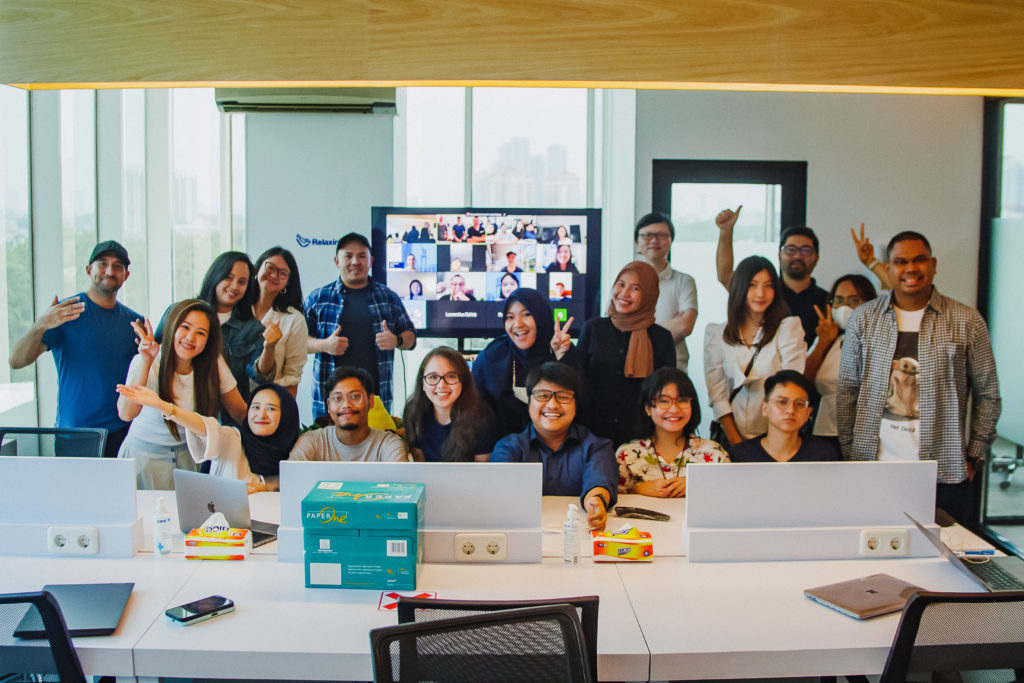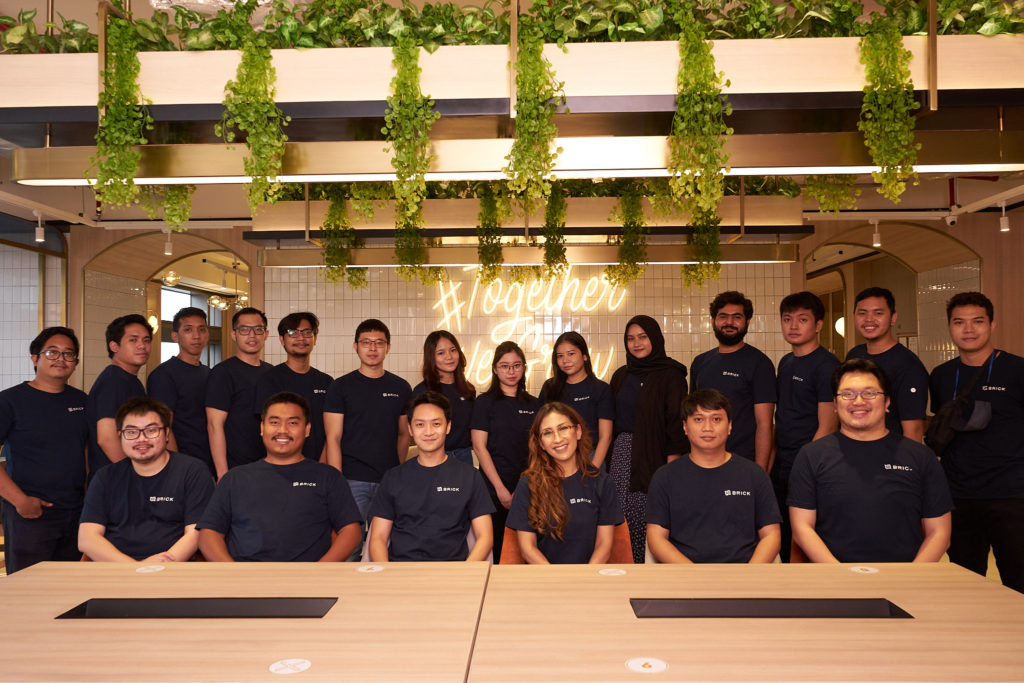How Open Finance Startups Are Shaping the Future of Payments in Southeast Asia
Brankas, Finantier, and Brick are among the new companies driving the adoption of fintech solutions, particularly open finance, in Southeast Asia
"Banking the unbanked” has long been a catchphrase in the fintech sector (fintech translation) of Southeast Asia, a region home to 290 million people who are not yet part of the conventional banking system. As a result, unicorn technology like Grab and GoTo, along with fintech developers, financial institutions, and local governments are starting to change their approach to offering financial services.
Product fintech began to be widely used in the last two years. The use of e-wallet jumped 45% compared to the pre-pandemic period. According to reports from Google, Temasek, and Bain & Company, e-wallet transaction volume is expected to increase by more than 200% by 2025.
While the use of cash is not going away any time soon, the rapid growth of digital payments is increasingly underpinning fundamental changes in the region. Solution open finance take financial inclusion in the region to the next level.
"Openfinance refers to technology products and policies that enable customers to access financial services from qualified third-party providers. Infrastructure, technology and data standards allow consumers to link their bank accounts to wallets GrabIt pays,” said Todd Schweitzer, founder and CEO of Indonesia-based open finance developer Brankas.
Data sharing consent supports open finance, so that startups like Brankas can develop APIs for technology companies or financial institutions to access user data, and most importantly, build various fintech-related products that can serve anyone, including consumers. unbanked and underbanked.
 Todd Schweitzer, founder and CEO of Brankas, an open finance developer based in Indonesia. Documentation by Safe.
Todd Schweitzer, founder and CEO of Brankas, an open finance developer based in Indonesia. Documentation by Safe.Brankas, which raised $20 million in a Series B round led by Insignia Ventures Partners on January 5, is one of the early stage fintechs to enable easy sharing of financial data. Founded in 2016, one of the company's unique value propositions is its partnerships with banks across the region.
Using the fresh capital raised, the company will expand its market reach by connecting digital banks and enterprises fintech in Vietnam and Bangladesh. So far, the company has collaborated with more than 40 financial institutions and 100 technology companies operating in Indonesia, the Philippines and Thailand.
The rapid development of Fintech startups
Developer open finance Other early stages include Hong Kong-based Finverse, Singapore-based Finantier, and Indonesia-based Brick. All of them were founded in 2020, when many obstacles appeared in the regional economy.
"During the pandemic, I discussed it with several drivers Gojek in Jakarta. They tell how difficult it is to get a loan to buy a motorbike so they can drive.Gojek. My question is why don't they go to the bank or fintech company [for a loan], and they say the bank and fintech company won't help them, because they have no credit history,” Finantier co-founder Keng Low told KrASIA.
 Finantier secured a seven-figure initial investment led by East Ventures and Global Founders Capital in June 2021. Documentation by Finantier.
Finantier secured a seven-figure initial investment led by East Ventures and Global Founders Capital in June 2021. Documentation by Finantier.To address these issues, Finantier offers credit scoring, account aggregation that allows businesses to build customer profiles from financial and non-financial sources, and payment initiation solutions that enable money transfers via Gateway licensed payments.
The unique value proposition that a company uses to differentiate from competitors is by focusing outside the bank. In December 2021, Finantier was officially recognized by the Indonesian Financial Services Authority, OJK, as a provider of digital financial innovation in the credit scoring.
“Competition is something we thought about from the start. Electronic wallets and banks don't want to be providers open finance with its various complexities. By connecting to telecommunications, companies E-commerce, and digital wallets, we differentiate ourselves from other players,” said Low.
Unlike Safe and Brick, which operate under a pay-per-use model, Finantier offers the concept product-as-a-service (PaaS), which according to one of the founders of Finantier Keng Low as an advantage over other startups in the field. Unlike other companies in the same arena, the company does not charge any setup fees or withdraw revenue from transactions.
However, for Gavin Tan, CEO and Co-Founder of Brick, competition is less of a concern. “We have to think of API as a modern infrastructure that allows fintech platforms to be launched in a much easier, faster and cheaper way. The pace of fintech startups has reached 5x compared to three years ago, with APIs that provide infrastructure," he said.
Does regulation go hand in hand with innovation?
Although the fintech industry is thriving, regulators have not been able to fully process this new development. So far, only Indonesia, the Philippines, Singapore and Thailand have published the framework open finance which defines key initiatives such as data and infrastructure regulation, according to the Safe and Integra Partners report.
 Brick received an undisclosed amount of seed funding in March 2021 from 1982 Ventures and Antler. Brick's documentation.
Brick received an undisclosed amount of seed funding in March 2021 from 1982 Ventures and Antler. Brick's documentation.“The main challenge is the lack of market literacy. Regulators are still studying and designing regulations open finance in his country. But there are no detailed regulations yet,” said Schweitzer.
In Indonesia, for example, the IT Ministry and the DPR are in discussions to review the Personal Data Protection Bill, which is expected to determine data ownership rights in the country. However, it is not yet clear when the bill will be passed, according to local publications Voice of Indonesia.
Although it is meant for users to have complete control over their own data under the framework open finance, the financial institution will continue to control the customer's financial data, such as account balances, mortgages, and credit history. “Generally in Southeast Asia, we're going to see that data isn't really being shared in a useful way. Financial data is not shared in a reliable way, that's why people can't get access to financial services," Gavin added.
Even so, the founders of Safe, Bricks, and Finantier remain optimistic about open finance, and is strengthening its regional presence. The market is huge—digital payments, including e-wallet and account-to-account payments, will only account for 24% of total payment volume in 2021, while cash is used for 59% of that total volume, according to reports by Google, Temasek, and Bain & Company.
-This article was first released by KRASIA. Re-released in Indonesian as part of the collaboration with DailySocial
Sign up for our
newsletter
